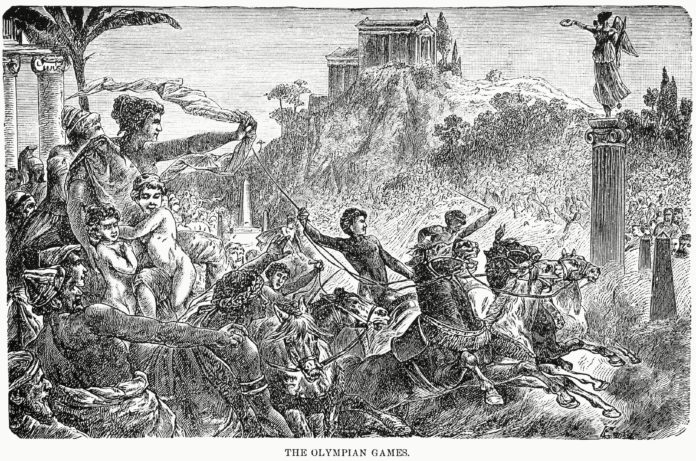The Ancient Olympic Games were established in 776 BC to honor the Greek god Zeus. They were quite different compared to the Olympic Games we know in modern times, having fewer sports, being less selective, and being much more dangerous. Here are some fun (and surprising) facts about the Ancient Olympic Games.
Participating Greek City-States Had to Agree to a Truce
The Greek city-states often engaged in wars, conflicts, and diplomatic disagreements. But that would all stop for the Olympics. Every participating city-state had to agree to a truce that lasted for one month.
All Free Male Greek Citizens Could Take Part
Every man who had a status of a free citizen could take part in the Olympics. Women were not allowed to compete except as horse owners in chariot racing events. Women-only games, called Heraean Games in honor of goddess Hera, were established in the 6th century BC.
There Was Originally Only One Event
The first 12 Ancient Olympics only featured one event. The participants competed in “stade,” which was essentially a foot race. The number of events steadily increased later on, with up to 20 events being held at a single Olympics in later years.
Cheating Was Punished By Public Whipping
Any actions that would give a competitor an unfair advantage were frowned upon. Those caught cheating would be severely punished by public whipping.
Only the Winner Would Get the Prize
There could only be one winner of the event and there was no recognition for those coming second or third. The prize for the winner was an olive wreath made out of leaves and flowers taken from a sacred tree.

